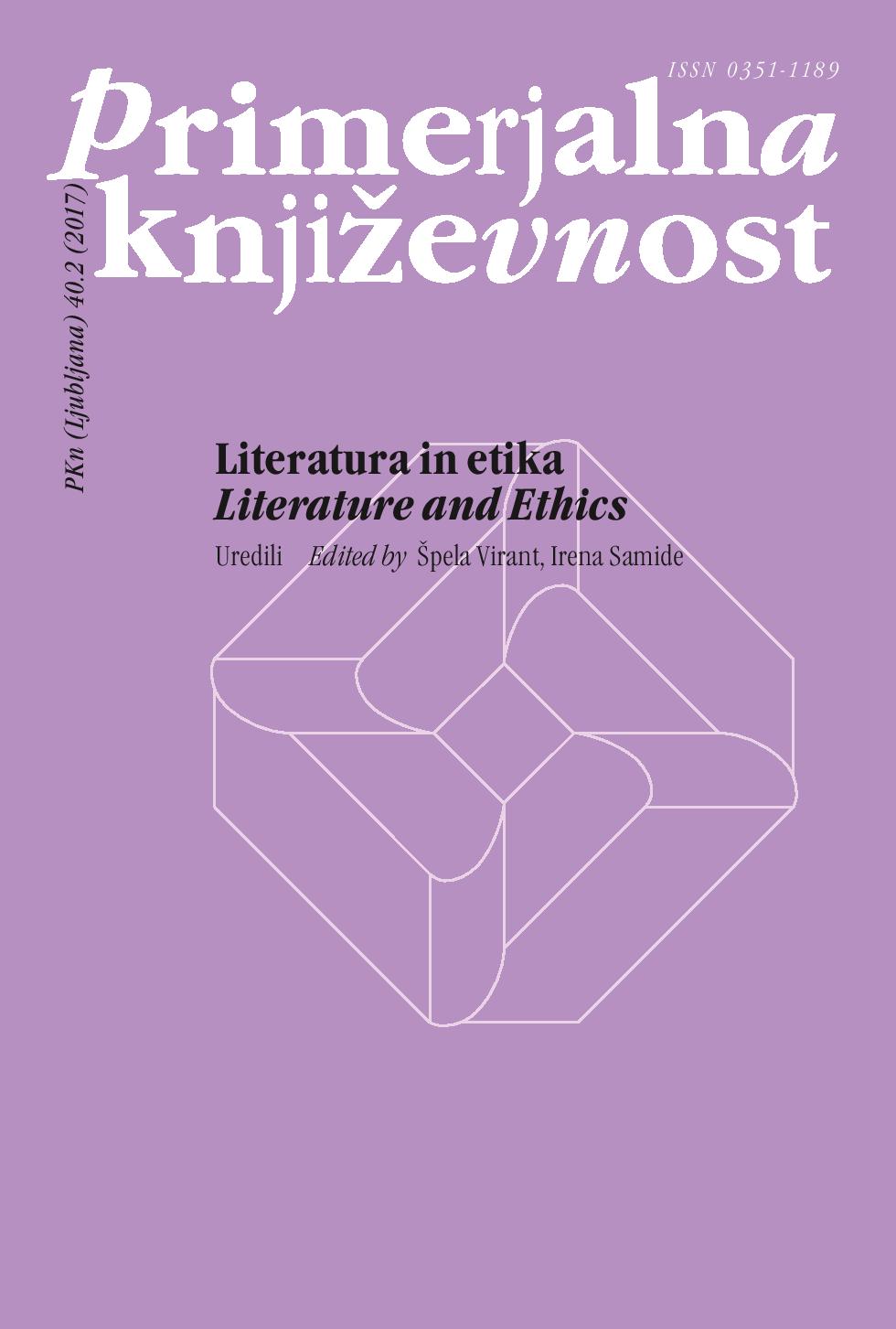From a Violent Past Towards a Global Ethics? Twentieth Century Atrocities in Select Novels of the Twenty-First Century
Keywords:
literature and ethics, world literature, twenty-first century, novel, aesthetic autonomy, social engagement, Shamsie, Kamila, Jenni, Alexis, Jergović, MiljenkoAbstract
The relationship between ethics and literature has always been a contested one. I firstly discuss this relationship, arguing that literature is not ethical per se, which is the reason why it can serve ethical purposes. Secondly, I state, in line with Martha Nussbaum, why any ethical thinking today has to refer to global ethics. Drawing from this, I present three recent novels, all of which deal with fundamental twentieth century atrocities: Burnt Shadows by Kamila Shamsie, The French Art of War by Alexis Jenni and The Walnut Mansion by Miljenko Jergović. They pose philosophical and ethical questions about war, violence and the great ruptures of civilisation. They are a component of world literature in the sense that the plot, and the ethical reflection triggered by this, is not related to a single nation state, but to the global situation. The authors make use of a historical profile encompassing a period of 60 to 100 years of narrated time. In this way, they can make a connection between personal and historical-political development visible. But this connection is less ensconced in the material history of the facts than in an ideology and “culture” that is responsible for the permanence of war and violent conflicts. The involvement of the characters in conflicts proves to be more than just a matter of character and of personal attitudes; it is also the result of social constellations. The personal and the political are never separated, which in no way releases the individuals from their responsibilities.References
Bessiere, Jean. “Littérature, éthique et questions contemporaines de théorie littéraire.” Primerjalna književnost 31.1 (2008): 3–13.
Jenni, Alexis. The French Art of War. Paris: Gallimard, 2011.
Jergović, Miljenko. The Walnut Mansion. New Haven and London: Yale University Press, 2015.
Jouve, Vincent. “Valeurs littéraires et valeurs morales : la critique éthique en question.” 2013. Web. 3 Sept. 2016. https://f.hypotheses.org/wp-content/blogs.dir/1449/files/2014/03/LitVal_Jouve.pdf.
Korthals Altes, Liesbeth. “Le tournant éthique dans la théorie littéraire : impasse ou ouverture ?” Etudes littéraires 31.3 (1999): 39–56.
Kundera, Milan. The Art of the Novel. Translated from the French by Linda Asher. New York: Grove Press, 1988.
Liessmann, Konrad Paul. “Und mehr bedarfs nicht.” Die Presse. Web. 30 July 2016.
Mayer, Mathias. Der Erste Weltkrieg und die literarische Ethik. Historische und systematische Perspektiven. München: Fink, 2010.
Mitterer, Nicola. Responsive Literaturdidaktik. Überlegungen zum Fremden (in) der Literatur als Beitrag zur literaturdidaktischen Theoriebildung. Bielefeld: transcript, 2016.
Nussbaum, Martha C. Love’s Knowledge. Essays on Philosophy and Literature. Oxford: Oxford University Press, 1990.
– – –. For Love of Country? Boston: Beacon Press, 1998.
Ricoeur, Paul. “Avant la loi morale : l’éthique.” Encyclopaedia Universalis. Les enjeux. Paris: Enyclopaedia France, 1985 [online]. Web 22 Dec. 2016. http://www.universalis.fr/encyclopedie/ethique/.
Sartre, Jean-Paul. Qu’est-ce que la littérature? Paris: Gallimard, 1948.
Shamsie, Kamila. Burnt Shadows. London: Bloomsbury, 2009.


